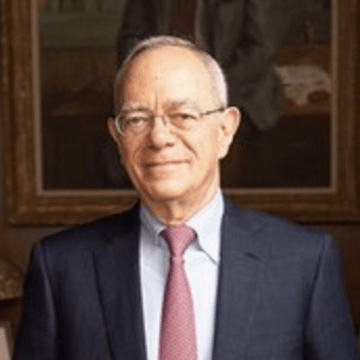L. Rafael Reif has served as the seventeenth president of the Massachusetts Institute of Technology (MIT) since 2012. In education, his central focus has been the development of online learning. The findings of his Institute-wide Task Force on the Future of MIT Education spurred rapid adoption of blended learning models in MIT classrooms, inspired the creation of new forms of credentialing such as the MicroMasters, expanded educational access for learners around the globe, and equipped MIT to respond to Covid-19 with a quick pivot to remote learning.
In May 2021, Dr. Reif and his leadership team released “Fast Forward: MIT’s Climate Action Plan for the Decade.” Distinctive elements include MIT’s Climate Grand Challenges, an initiative to accelerate breakthrough ideas, and the MIT Climate and Sustainability Consortium, which unites leading companies in piloting and adopting climate solutions.
To advance the frontier of human and machine intelligence, in February 2018, Dr. Reif announced the MIT Quest for Intelligence; that same month, recognizing the responsibility of technologists to understand the societal impacts of automation, he launched the MIT Task Force on the Work of the Future. Later that year, Dr. Reif announced the MIT Schwarzman College of Computing, the most significant reshaping of the institute since the 1950s. He also led the creation of MIT.nano, a world-class facility for nano-science and engineering research.
A member of the MIT faculty since 1980 and the inventor or co-inventor on 13 patents, Dr. Reif has served as director of MIT’s Microsystems Technology Laboratories, as head of the Department of Electrical Engineering and Computer Science (EECS), and as provost. He received the degree of Ingeniero Eléctrico from Universidad de Carabobo in Valencia, Venezuela, and a doctorate in electrical engineering from Stanford University.
 Online Store
Online Store
